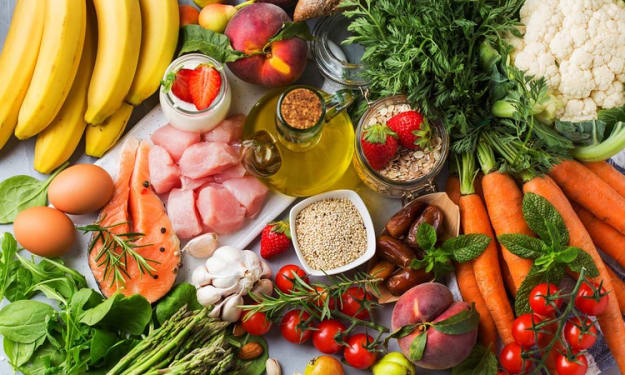Science Shorts - Treating IBD with a Plant-Based Diet
The first in a series of short reads. Backed by science. Led by research.

Disclaimer: This information does not serve as medical advice and professional medical advice should always be sought to ensure lifestyle changes are suitable for your individual needs and requirements. This information is purely summarizing some of the peer-reviewed information available through Google Scholar, and is by no means a comprehensive review of all the literature available.
Inflammatory Bowel Disease (IBD) is the catch-all term for chronic disease that affects your gut. IBD is the term used to describe two different but similar conditions - Crohn's Disease and Ulcerative Colitis.
IBD is characterized by periods of flare-ups and periods of remission. Flare-ups involve an active expression of symptoms - often persistent diarrhea, pain, bloating and gas, fatigue, and in many cases, weight loss (1). Besides these physical symptoms, IBD often brings anxiety and avoidance of certain foods believed to trigger symptoms, a sense of isolation with fear of leaving the house and being caught-out when the symptoms flare and a visit to the toilet is in desperate need.
Remission is very much the opposite - patients are largely free of symptoms (although tiredness can persist) but flare-ups will happen in the future as there is no cure for IBD yet. But extending the period of time that people stay in remission is a big focus of researchers, as remission can improve quality of life and overall health since the body is not facing daily bouts of exhausting trips to the bathroom and chronic inflammation.
But how do people stay in remission for longer? Well of course, there are many types of medication out there that can be used to reduce inflammation, suppress the immune system (IBD is an autoimmune condition where the body mistakenly attacks itself) and treat IBD effectively. But what about those people who don't want to stay on medications all there life? What about those who want to live a near-normal, medication-free life? Well, there may be one solution - Plant-Based Diets (PBD).
Now, if you are an avid meat-eater with no chance of being persuaded then thanks for reading this far, but you can probably stop now. But if you are open to making lifestyle changes to potentially rid yourselves of medication (at least for the short term) then please, read on.
Remission is (almost) always achieved by medication, but once it is, consuming a plant-based diet has been shown to keep 100% of patients in remission during their first year, and 90% of people in remission during their second year. Consumption of a PBD has also been shown to induce remission without the need for medication in around 1/3rd of patients suffering with mild Ulcerative Colitis specifically (2).
This study from 2019 also found that a PBD may improve effectiveness of a common IBD drug called Infliximab - which does not work for around 30% of people. But when paired with a PBD, remission was achieved in 96% of people.
A second study (3) looked at 22 individuals with Crohn's Disease, and followed their remission journeys posthospitalization. During hospital, all 22 patients received a plant-based diet. Upon leaving, 16 patients chose to continue consuming a PBD and remission was maintained in 15/16 of them. Of those who achieved remissions through a PBD, 100% stayed in remission during year 1 and 92% were still in remission through year 2.
What these studies show is that a Plant-Based Diet can be hugely effective at maintaining remission in patients with IBD. And as discussed, prolonged remission is often associated with a higher quality of life - something I'm sure we all strive for. In both studies, remission was maintain in 100% of people following a plant-based diet, and the second year remission rates were nearly identical.
But whilst these numbers are staggering, one study (4) found individuals on a Vegetarian Diet of Gluten-free Diet report lower psychological wellbeing than those consuming an omnivorous diet.
It is important to note that remission will not be maintained indefinitely and consuming a PBD does not guarantee your success with achieving and maintaining remission. But no drug, treatment plan or medical professional will ever guarantee success regardless how many times a treatment has been used. But if you think that consuming a PBD is something you want to try, in potentially maintain remission for a lengthy period of time, I strongly advise consulting with your doctor, clinical nurse or dietician about the best way to transition to a PBD.
Have you followed a PBD to maintain remission for IBD? Did you have success? Let me know what you think of this below!
References
(1) https://www.cdc.gov/ibd/what-is-IBD.htm
(2) Recommendation of plant-based diets for inflammatory bowel disease (nih.gov)
(3) Lifestyle-related disease in Crohn’s disease: Relapse prevention by a semi-vegetarian diet (nih.gov)
(4) Vegetarian or gluten-free diets in patients with inflammatory bowel disease are associated with lower psychological well-being and a different gut microbiota, but no beneficial effects on the course of the disease.






Comments
There are no comments for this story
Be the first to respond and start the conversation.